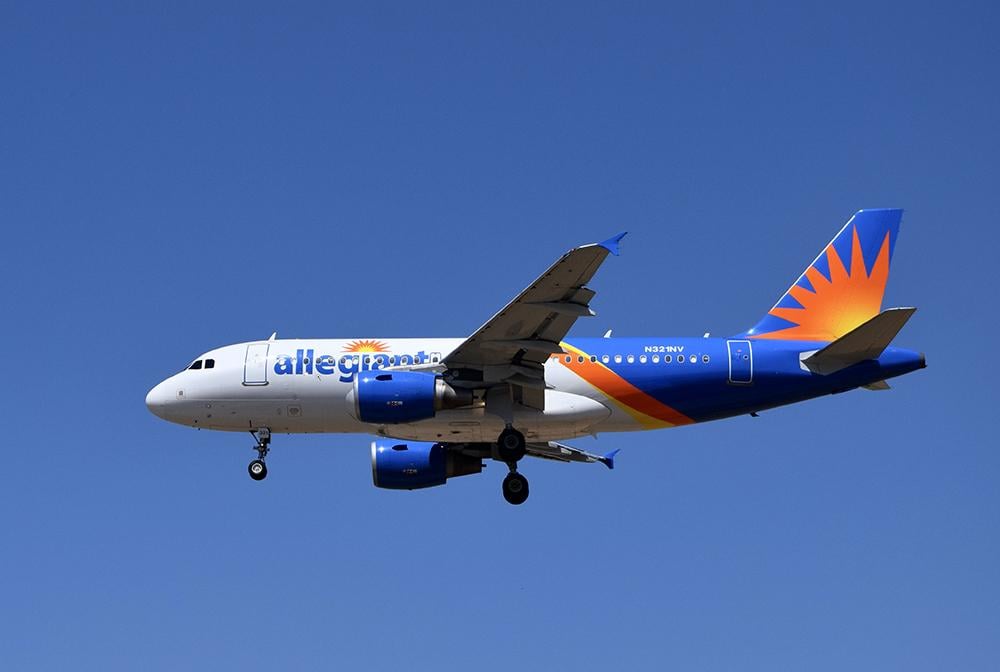
Allegiant Air is stocking spare parts and adding mechanics ahead of its next peak-flying period—part of the carrier's strategy to get ahead of supply chain issues that contributed to recent operational problems.
"Undoubtedly, flying labor and MRO supply chain challenges are the No.1 and No. 2 focus areas as we look to support our March 2022 flying," Chief Operating Officer Scott Sheldon said on the company's Oct. 27 earnings call.
The company is targeting a baseline growth figure "in the low double digits" in 2022—a conservative plan for the Las Vegas-based carrier. Part of the conservatism stems from concern over supply-chain constraints that contributed to a difficult first nine months.
The airline plans to add 19 aircraft to its all-Airbus A320ceo-family fleet in 2022, increasing it to 127. The inductions account for the bulk of 24 scheduled heavy airframe events next year. It also is continuing its "max pax" densification project that adds nine seats to its 177-seat A320s, putting more pressure on its supply chain to have materials in place.
"A lot of the material that is sourced is coming from outside the country," Sheldon said. "We operate out of six MROs in a number of different countries. We're definitely trying to simplify it, given our execution in the first nine months [of 2021]. The first quarter hit us as we're trying to wake planes up [and] MROs were scrambling to get their operations back online. So we're trying to either build in additional buffers that allow us to make sure we have [what] we need."
It will start 2022 with 22 177-seat A320s and 51 186-seat A320s. It also operates 35 156-seat A319s.
In addition to conversion kits, Allegiant said it has spent $20 million on spare parts, getting an estimated 50% discount compared to pre-pandemic pricing.
"We want to make sure that the right parts and tools are at the right place at the right time," said CFO Greg Anderson. "Just given the constraints that we experienced this past year, that wasn't always the case, but we have been proactively trying to get ahead of that."
The airline is adding about 300 pilots and mechanics to stay "a couple of steps ahead of the growth," Anderson said.
Allegiant and its mechanics, represented by the International Brotherhood of Teamsters, also announced a new contract—the workers' first collectively bargained agreement. Details include an average 24% pay raise and new signing bonuses, which management said are needed to attract new technicians.





